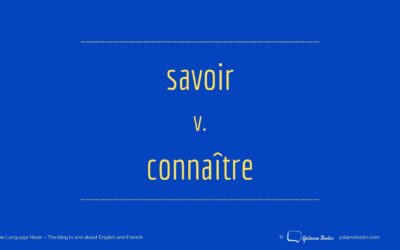The French word plus can have two different meanings:
Plus can mean more, as in:
- Les gens passent plus de temps sur les réseaux sociaux. (People spend more time on social media.)
- Elle a mangé ses céréales mais elle en veut plus. (She’s eaten all her cereal but she wants more)
Plus can also be the second part of the negative form and mean not anymore, no longer, none left (ne… plus).
- Il n’y a plus de fromage. (There’s no cheese left)
- On ne va plus au cinéma. (We no longer go to the cinema / We don’t go to the cinema anymore).
- Elle n’en veut plus. (She doesn’t want any more)
Note that in everyday French, when we speak, we tend to drop the ne part of the negative form and use only the second part. This is how we end up saying:
- Il y a plus de fromage. (instead of “Il n’y a plus de fromage.”)
- On va plus au cinéma. (instead of “On ne va plus au cinéma.”)
- Elle en veut plus. (instead of “Elle n’en veut plus.”)
When we read these last three sentences, we can understand two totally different things:
- Il y a plus de fromage → There’s more cheese or There’s no cheese left.
- On va plus au cinéma → We go to the cinema more often or We no longer go to the cinema.
- Elle en veut plus → She wants more or She doesn’t want any more.
So, when someone speaks to you this way, how can you tell what they mean? The answer is: because of the pronunciation!
When plus means more, you need to pronounce the final s
When plus is part of the negative form, do NOT pronounce the final s (pronounce plus exactly as if the s wasn’t there at all)
Listen to these examples and practice repeating them:
Il y a plus de fromage (= more)
Il y a plus de fromage (= none left)
On va plus au cinéma (= more)
On va plus au cinéma (= not anymore/no longer)
Elle en veut plus (= more)
Elle en veut plus (= not any more)
Careful! When plus means more (in the comparative), the s is not pronounced when plus is followed by a word starting with a consonant. Yet the s sound becomes a z sound if the word plus is followed by a word starting with a vowel or a silent h. For instance:
Ce livre est plus intéressant. (This book is more interesting)
Il est plus habile que moi. (He’s more skilful than me)
There you are! You now master the pronunciation of the word plus in French and can tell the difference between the two meanings of plus. Congratulations! 🙂





Excellent! Loved the audio!!!! I learned something totally new to me yet so common to French speakers.
Thanks Ellen! I’m glad you enjoyed the audio and could learn something new about the French language! 🙂